Personalized & Precision Medicine
-
Facebook
-
Twitter
-
Linkedin
Personalized and precision medicine tailors cancer treatment based on an individual’s genetic profile, tumor characteristics, and lifestyle factors. This approach enhances treatment effectiveness, minimizes side effects, and improves patient outcomes through targeted therapies and advanced diagnostics.

Patients with advanced skin cancer to test a new vaccine in NHS drive
Patients with advanced skin cancer will be able to test a new vaccine as part of a drive to speed up the development of new treatments.

‘Huge breakthrough’ as breast cancer pill approved for NHS
A “huge breakthrough” in breast cancer treatment has arrived with the NHS approval of a twice-daily pill for the most common form of advanced disease.
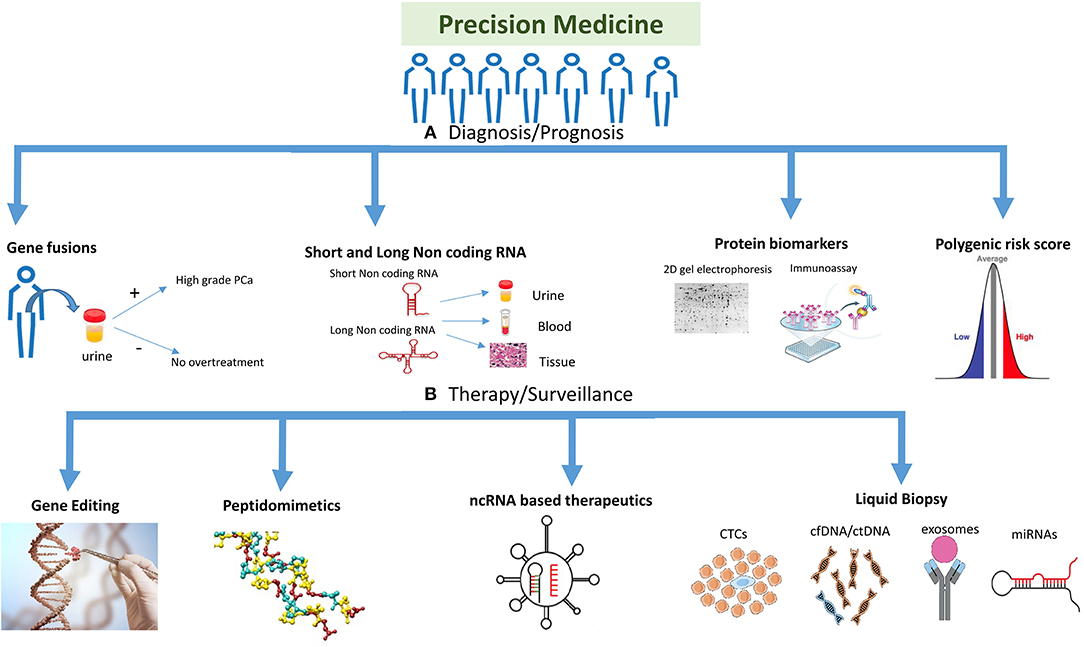
Precision Medicine for Prostate Cancer
AI can help patients decide whether active surveillance is right for them

Scientists find new structure in DNA repair protein that could help treat cancer
Scientists at the University of Iowa have made an exciting discovery that could lead to new cancer-fighting drugs.

Study finds big cause of DNA changes that lead to cancer
A recent study from Yale University has brought scientists a step closer to understanding what causes cancer by revealing how much of a tumor’s growth is due to preventable factors, aging, or random chance.

Protein HKDC1: A new potential target for colon cancer therapy
People with inflammatory bowel disease (IBD) also have an increased risk of developing colorectal cancer. However, the exact mechanisms behind this are still largely unknown.
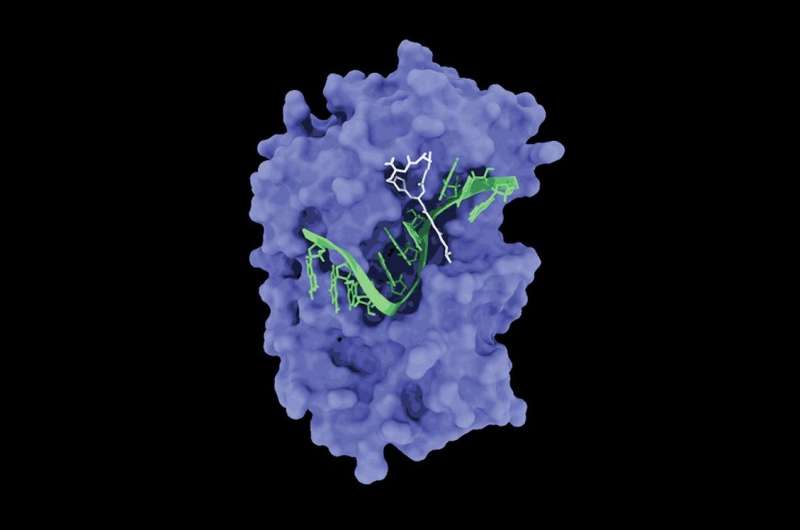
Researchers learn how a drug called zotatifin kills cancer cells
Swirling inside every cell are millions of microscopic messages called messenger RNAs (mRNAs).

Breakthrough Discovery Paves the Way for Treating One of the World’s Most Lethal Cancers
Pancreatic cancer’s five-year survival rate is currently only 13% and is responsible for over 5% of all cancer deaths in the UK. Unfortunately, the symptoms of this disease often only appear once the cancer has already spread to other parts of the body.

Genetic mutation predicts pancreatic cancer metastasis and survival
A new study by Mayo Clinic Comprehensive Cancer Center researchers found that the presence of a specific genetic mutation—KRAS circulating tumor DNA (ctDNA)—strongly indicates a higher risk of cancer spread and worse survival rates for patients with pancreatic ductal adenocarcinoma (PDAC).

Triggering Cancer Cells To Self-Destruct Could Help Tumors to Shrink
Cancer is the second leading cause of death in the U.S., claiming around 600,000 lives in 2022 alone. A diagnosis can be devastating, as the disease can often resist treatment and spreads uncontrollably.

Cancer Vaccines Are Suddenly Looking Extremely Promising
With the help of mRNA technology proven effective during the COVID pandemic, researchers are now closer than ever to creating viable cancer vaccines.
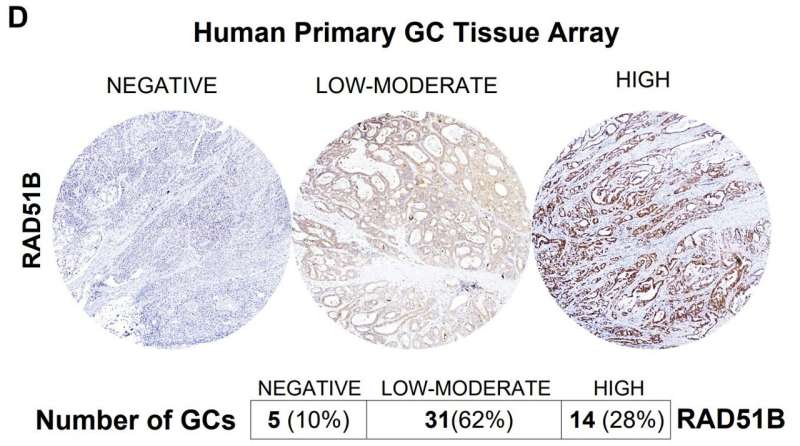
RNA molecule identified as possible driver of gastric cancer
Researchers at Case Western Reserve University have discovered molecules that present the potential to drive the development of gastric cancer—among the world’s deadliest forms of the disease.

New discovery shows major cause of deadly pancreatic cancer
Pancreatic cancer is one of the deadliest types of cancer. The most common form, called pancreatic ductal adenocarcinoma (PDAC), spreads quickly and is very hard to treat.

New mRNA vaccine may help pancreatic cancer patients live longer
A new type of mRNA vaccine, added to standard cancer treatment, could help some patients with pancreatic cancer live longer. A small study at Memorial Sloan Kettering Cancer Center tested this approach and found promising results.
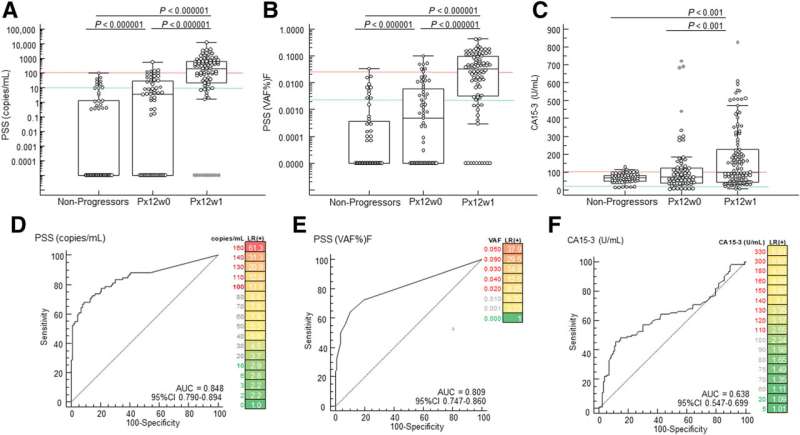
New technique to measure circulating tumor DNA in metastatic cancer may improve surveillance and outcomes
In metastatic cancer surveillance, monitoring the actual concentrations of circulating tumor DNA (ctDNA) may be critical. Researchers showed that absolute ctDNA concentration thresholds can be defined to rule out or predict impending cancer progression.

Pancreatic cancer RNA vaccine shows durable T cell immunity
Memorial Sloan Kettering Cancer Center researchers have found RNA neoantigen vaccines that generate long-lived, functional CD8+ T cells in patients with pancreatic ductal adenocarcinoma (PDAC), potentially delaying disease recurrence.

Tardigrade proteins show promise in cancer care
Patients undergoing radiation therapy experience debilitating side effects because of toxicity arising from radiation-induced DNA strand breaks in normal peritumoral cells.

Experimental vaccine for common cancer shows potential in clinical trial
At Memorial Sloan Kettering Cancer Center (MSK) in New York, an experimental approach to treating the cancer with a messenger RNA (mRNA)-based therapeutic vaccine “continues to show potential” in reducing the risk of the disease returning after surgery, according to a press release.

Are These Cancer-Preventing Habits A Part Of Your Routine? (Because They Should Be)
A certain amount of cancer risk has to do with your DNA, but epigenetics (i.e., lifestyle choices and environment) also plays a significant role.

Talazoparib + Enzalutamide Tied to Improved Overall Survival in Metastatic Prostate Cancer
WEDNESDAY, Feb. 19, 2025 (HealthDay News) — For patients with metastatic castration-resistant prostate cancer (mCRPC) unselected for homologous recombination repair (HRR) gene alterations, talazoparib (TALA) + enzalutamide (ENZA) is associated with improved overall survival versus placebo + ENZA, according to a study presented at the American Society of Clinical Oncology annual Genitourinary Cancers Symposium, held from Feb. 13 to 15 in San Francisco.

Genetically altered mice shed light on skin cancer
Research in Asia and Europe has provided further insights into how disruption to communication between the gut and brain could have an effect on anxiety levels and diseases such as Alzheimer’s.

Urinary DNA methylation test shows some promise for noninvasive bladder cancer screening
Researchers led by the University of Ulsan College of Medicine, Korea, have checked the performance of a noninvasive urinary DNA methylation test for bladder cancer diagnosis.
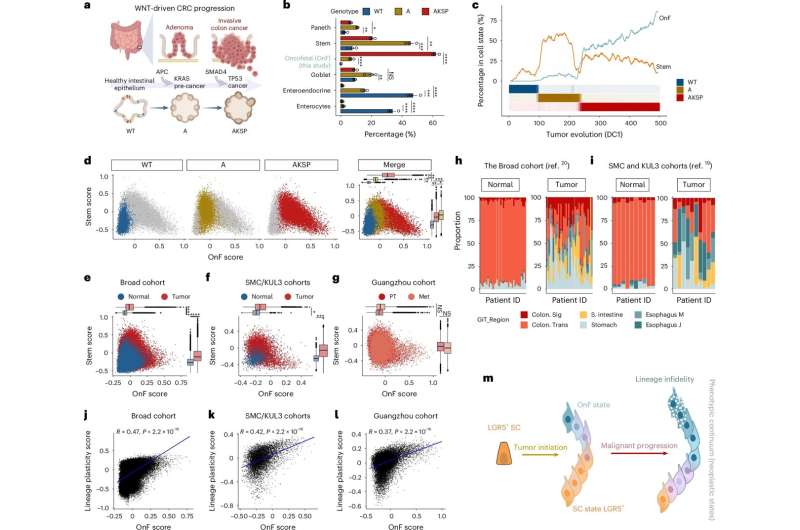
Researchers discover why some colon cancers resist treatment
Researchers at The Tisch Cancer Institute at Mount Sinai have uncovered a major reason why some colorectal cancers (CRC) resist treatment.
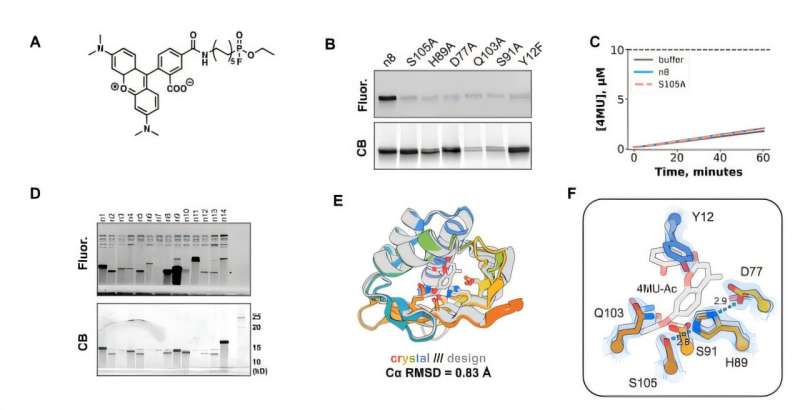
A newly discovered biomarker can predict cancer aggressiveness
Using a new technology and computational method, researchers from Fred Hutch Cancer Center and The University of Texas MD Anderson Cancer Center have uncovered a biomarker capable of accurately predicting outcomes in meningioma brain tumors and breast cancers.






